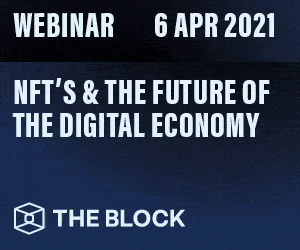
Key Takeaways
- Goldman Sachs has published a report discussing crypto’s potential as an institutional asset class.
- Researchers argued that the value of a blockchain depends on the information stored on it, claiming that Ethereum could become the number one chain in the future.
- The report also discussed the importance of decentralization for the future of the space.
Goldman Sachs researcher Jeff Currie believes that Ethereum could become the Amazon of Information where individuals can privately store, transfer, and sell their personal data.
Blockchain and the Data Economy
Goldman Sachs researchers are bullish on crypto’s future role in the data economy.
The banking giant recently published a report titled “Crypto: A New Asset Class” discussing the technology’s potential to become an institutional asset class. In it, the Global Head of Commodities Research Jeff Currie discussed the potential for blockchains to change the way information is handled on the Internet. In industries where trust is key, blockchain’s ability to be immutable and public while still protecting privacy gives it a significant edge over frameworks that require trust to function. Finance, law, and medicine are key areas where smart contracts can change the way information is transferred, Currie noted.
The report also said that Ethereum’s native smart contract integration could one day help it surpass Bitcoin as the world’s most valuable blockchain. Currie wrote:
“The most valuable crypto assets will be those that help verify the most critical information in the economy.”
He went onto explain that as more users bring their data to the blockchain, any privacy concerns will disappear as the number of digital profiles grows, giving examples of medical data, personal finances, asset ownership, and intellectual property rights.
The same report saw Galaxy Digital’s Mike Novogratz sharing similar views on Ethereum’s future. He said:
“The three biggest moves in the crypto ecosystem—payments, DeFi, and NFTs—are mostly being built on Ethereum, so it’s going to get priced like a network. The more people that use it, the more stuff that gets built on it, and the higher the price will ultimately go.”
The crypto market has suffered a significant downturn in recent weeks. BTC suffered its biggest monthly dip in a decade, while ETH is down over 40% from record highs. Nonetheless, Ethereum usage is on the rise. Currie discussed the network’s potential to become the equivalent of Amazon for information in the future. He said:
“A blockchain platform like Ethereum could potentially become a large market for vendors of trusted information, like Amazon is for consumer goods today.”
Goldman Sachs Turns Bullish
Goldman’s thoughts on crypto today contrast those the bank has held in the past. The institution memorably discussed crypto in a presentation in 2020, concluding that it was “not an asset class.” They argued that Bitcoin was too volatile for institutional and banks to consider it a worthy investment.
Crypto has gone through its biggest bull run ever since then, and the bank has changed its stance. It recently outlined its plans to offer Bitcoin products to wealthy clients. The latest report highlights how Bitcoin’s fast-growing global adoption is driven partly by its strong brand and some of the properties that make or break a potential store of value like privacy, security, and transferability. Its digital nature also makes it more appealing to younger generations, the researchers argued.
Goldman Sachs insists that Bitcoin’s hard-cap supply is one of the most notable asset characteristics, comparing it to Ethereum’s unlimited supply (Ethereum will soon implement a major upgrade that targets the supply issue, though it’s not due until at least July).
According to the report, the most threatening obstacle to global cryptocurrency adoption is a legal crackdown. Currie argued that blockchains will need to be truly decentralized to appease regulators. “If crypto assets are to survive and grow to their fullest potential, they need to define some concept of “sufficiently decentralized” that will satisfy regulators,” he said. “Otherwise, the technologies will soon run out of uses.”
Disclaimer: The author held BTC, ETH, and several other cryptocurrencies at the time of writing.














